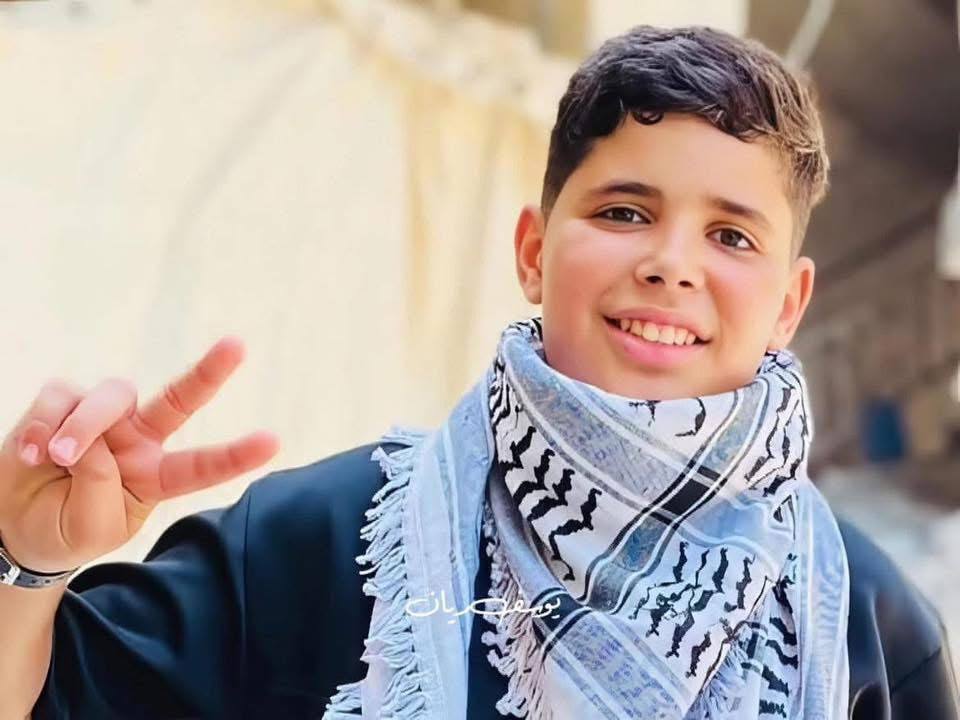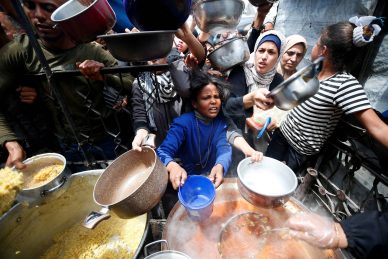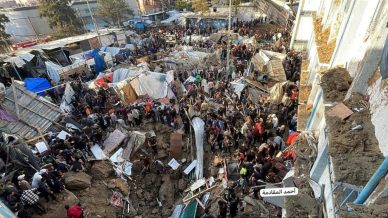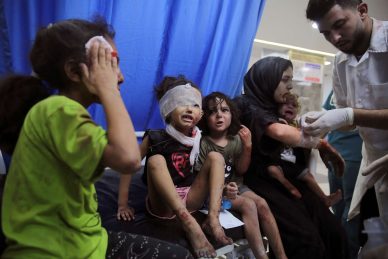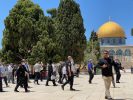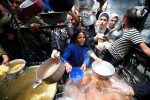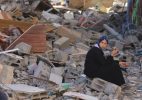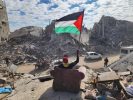GAZA, (PIC)
In a trembling yet unwavering voice, Palestinian child Hassan Ayad sang: “Bear witness, O world, to what they’ve done to us—they demolished our homes, while the Arabs sleep soundly…”
It was more than a song. It was a cry. A final message from a young soul who carried the burden of a nation’s pain in his voice—one that has now been forever silenced by the very bombs he sang against.
Hailing from Gaza, Hassan was no older than thirteen when he decided to use his voice as a form of documentation. Amid the daily horrors of siege and war, he recorded an anthem that linked the agony of his generation to the legacy of the Palestinian resistance in Beirut. Singing beside his father in a now-viral video, Hassan echoed the resilience of a people who have endured occupation, exile, and genocide for decades.
He could not have known that this recording would become one of thousands of heartbreaking testaments to the horror unfolding in Gaza—a genocide marked by Israeli bombs, American support, and an Arab silence so deep it borders on complicity.
The words Hassan sang were drawn from a powerful piece written by late Palestinian poet Ahmad Dahbour and later performed by the legendary Al-Ashiqeen Band during the 1982 Israeli invasion of Beirut. The song, first born in the barricades of that battered city, is a poetic record of bloodshed, betrayal, and endurance. Now, four decades later, Hassan resurrected its soul, singing for Gaza as if time had collapsed and the tragedies of Beirut had returned in new form.
A digital grief across borders
Following the announcement of Hassan’s martyrdom, social media erupted in sorrow. Thousands of Palestinians and Arabs mourned the child who became a symbol of a generation’s suffering. Hassan was not just a boy with a beautiful voice—he was a messenger from beneath the rubble. His video, re-shared widely, became a final will, a haunting echo of resistance.
“He was our neighbor,” wrote Ibrahim Al-Hajj. “Hassan and his father were the same voices that lit up the stadiums with chants. We didn’t attend games to win—every Friday, we went to feel the fire they ignited.”
Another mourner, Maram, said: “Hassan sang for resistance, justice, childhood under siege, for Gaza—the land he lived in and died in, before the last note was sung.”
Many compared his piercing tone and soulful eyes to the children of the First Intifada—young voices shaped not by lullabies, but by airstrikes, fear, and defiance.
Media outlets around the world shared his video once more. In one particularly heart-wrenching moment, his father cried out: “Take Hassan to his mother… Al-Aqsa runs in his blood.”
Beirut to Gaza: History on repeat
Hassan’s rendition was no random song—it was a deliberate tribute to a revolutionary anthem born in Beirut in the early ’80s. The original track, “Bear witness, O world, to what happened to us in Beirut,” was performed by Al-Ashiqeen Band during Israel’s brutal invasion of the Lebanese capital. It documented massacres like Sabra and Shatila and denounced the global and regional silence that surrounded them.
In an article published just weeks before the latest Gaza war, writer Noha Saadawi described how Dahbour’s lyrics carried “buried sorrow wrapped in defiant anger.” She imagined the poet writing “with one hand while clutching his chest with the other, bracing his heart,” as he chronicled 80 days of siege, betrayal, and endurance.
From Sabra to Shatila, Burj al-Barajneh to Qalaat Shuqeif, Dahbour left nothing undocumented. Hassan, in turn, adapted the lyrics to Gaza’s modern tragedy, giving voice to a besieged city groaning under bombardment, its families displaced, its children searching for water and survival.
He sang:
“We tasted death in airstrikes, land and sea raids,
They sealed the crossings—people dying of hunger,
What is this Nazi war?”
Though Hassan never lived through the Beirut siege, he lived its echo in Gaza—its modern twin. His song became an intergenerational cry of defiance, passed like a torch from the revolutionaries of Beirut to the children of Gaza.
A living witness silenced
The Al-Ashiqeen Band, a pillar of Palestinian musical resistance, resurfaced in public memory through Hassan’s song. Many saw his performance as a symbolic handover between generations of freedom fighters. Despite the pain, despite the ruins, the voice of resistance lived on in Hassan.
He was not just a boy. He was a living witness to a crime of genocide. He did not learn music in an institute but beneath the rubble, in the echoes of mothers’ cries. He sang with innocence not yet crushed by adulthood, and with a voice that cracked the walls of silence.
As Noha Saadawi noted, the traditional melody of “Bear Witness, O World,” reimagined by Palestinian composer Hussein Nazek, transformed pain into discipline, and grief into structure. Hassan carried that same rhythm with only his voice—no instruments, no studio—just raw truth.
“878 days we heard nothing but radio morale … Their voices were with us, but the images melted away…”
Gaza today: A bleeding wound
Eighteen months into what many call one of the worst humanitarian catastrophes of the modern age, Gaza lies in ruins:
• Over 170,000 Palestinians killed or wounded.
• Thousands of homes obliterated.
• Most hospitals nonfunctional.
• Contaminated water, famine looming.
• And two million lives hanging in the balance, while the world watches—and the region sleeps.
Hassan’s song wasn’t just a performance—it was a testimony. A weapon. A declaration of defiance. He understood that music is resistance. And he used it to carry Gaza’s pain in a tune born decades earlier from Beirut’s ashes.
Children in Gaza die every day, but Hassan’s story is different. As many have said—he mourned himself. He sang his own farewell, with heart wide open. His simple words now belong to the eternal archive of Palestinian resistance—from Nakba to blockade, from Beirut to Gaza, from hope to heartbreak.
His voice will echo long after the bombs go silent.

